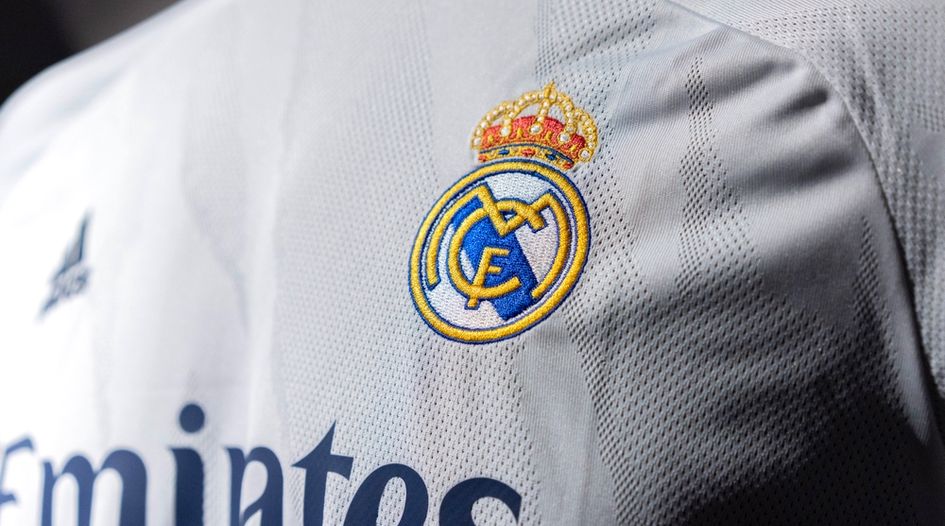Real Madrid ranked most-valuable football brand; Manchester City rises to second place

- Real Madrid identified as the most valuable football brand in the world
- Spanish club also tops ‘brand strength’ ranking, ahead of Liverpool FC
- Expert claims brand of leading clubs ‘rival those of Coca-Cola and Google’
Spanish club Real Madrid has been ranked the world’s most-valuable football brand in the latest deep-dive analysis from Brand Finance. The report finds that major football clubs “are not just entertainment brands, but are also country brands” that boost the GDP and sense of meaning of their local area, with brand strength of the top teams “similar to those of Coca-Cola and Google”.
The report, ‘Football 50 2022’, was published today by brand valuation consultancy firm Brand Finance. The release coincides with the end of most European football competitions, with the Champions League final set to be played later this week. The report ranks 50 of the leading football clubs by both brand value (the present value of earnings related to brand reputation and the earnings made through the ownership and control of owning trademark rights) and brand strength (which measures metrics including the audience perception, market share, and brand-related performance measures).
The headline finding is that Real Madrid, which clinched the La Liga title last week, “has achieved a rare double” of being ranked as the world’s most valuable football brand and the world’s strongest football brand. It is the first time a single club has won both brand titles.
In terms of brand value, Real Madrid grew by 19% year-on-year to £1.3 billion, driven – the report claims – by a positive revenue trajectory and a global survey in which it was most likely to be rated as ‘the best club in the world’. While this year’s brand value has not yet surpassed the pre-pandemic peak, it represents success for a club that, on paper, is widening the La Liga league table gap between long-time rivals FC Barcelona.
That gap is also represented in this year’s ranking, with FC Barcelona dropping to third place in the ranking, overtaken by English Premier League winners Manchester City. Another notable drop is the latter’s area rival Manchester United, which had a disappointing season and saw its brand value ranking fall from third place to fifth. Across the Channel, Paris Saint Germain saw its brand value increase by 16%, spurred in part by the arrival of superstar Lionel Messi, often regarded as the greatest footballer ever.
The top 10 football club brands:
- Real Madrid – £1.293 billion (+12.3% year-on-year)
- Manchester City – £1.126 billion (+11.6%)
- FC Barcelona – £1.124 billion (-1.7%)
- Liverpool FC – £1.079 billion (+22.8%)
- Manchester United – £1.060 billion (+4%)
- Bayern Munich – £940 million (-2.4%)
- Paris Saint-Germain – £871 million (+8.7%)
- Tottenham Hotspur – £740 million (+13.4%)
- Chelsea FC – £725 million (+4.4%)
- Arsenal FC – £672 million (+10.4%)
In terms of brand strength (which is measured on a scale up to 100), Real Madrid (94) moves into top spot, followed by Liverpool FC (92.9), FC Barcelona (92.1), Manchester United (92), and Bayern Munich (88.6). The rise in brand strength from many of the clubs follows the reputational recovery following the disastrous announcement of a European Super League (ESL), which was swiftly scrapped. In Liverpool’s case, for example, its “clear and positive reversal from ownership following the ESL fiasco” (including a personal apology from owner John W Henry) led to the highest rise in brand strength of any club.
The results of Brand Finance’s ranking are keenly watched by the clubs, with commercial activity, licensing and branding now an increasingly important part of the football industry. Football clubs are big business. Thus, the official website of Real Madrid published a press release about its success in the report, while Italian club Juventus boasted of its “staggering increase of 25% in brand value” and of owning “the trademark with the greatest financial value, making up approximately 30% of total business value” (Juventus unveiled a new brand identity and logo in 2017).
The impact of strong football brands also resonates beyond club boardrooms. As the report describes, football remains the most popular sport in the world, and the major clubs can shape and influence the perception of entire cities and countries – even more so than corporate brands. As described by Brand Finance España director Teresa de Lemus: “Football brands are not just entertainment brands. They are also local brands or country brands. And as such, they are part of an industry that contributes greatly to the countries' GDP and sense of meaning. The link between the city brand and the club brand is highly relevant and a powerful marketing tool. Both have the capacity to attract tourism, to give international visibility, and to impact one on the other.”
On top of that, the popularity of football means that the leading clubs – from Real Madrid to Manchester Utd – have some of the most recognisable global brands. According to Brand Finace CEO David Haigh, such clubs “boast brand strength similar to that of Coca-Cola and Google” – and that looks set to rise even further (especially in the US, with the popularity of football recently overtaking ice hockey).
Looking ahead, WTR will be publishing the next edition of its ‘Trademark Premier League’ next week, in which we look at the trademark portfolios of the leading football clubs and players (you can read last year’s edition here). While such IP protection is not the only factor when it comes to brand value, it can reveal the importance that clubs place on protecting and commercialising their brand assets.


